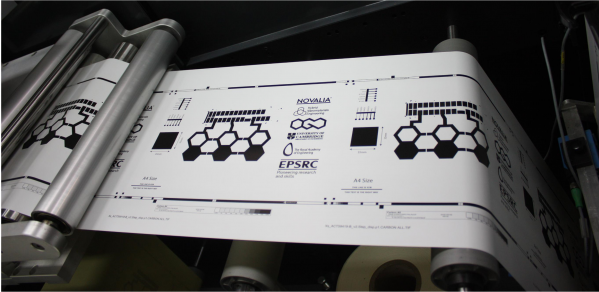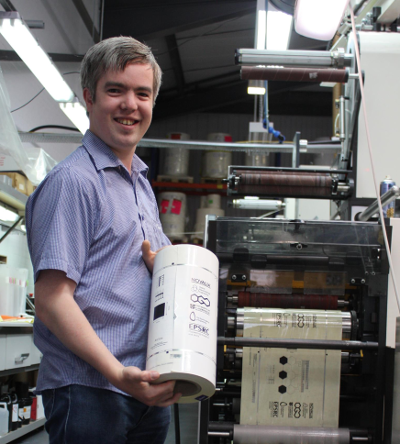
Richard Howe, a PhD student in the Department of Engineering, has been selected as a recipient of the first-ever NanoDTC Translational Prize Fellowship.
I will be working with our industrial partners to produce graphene-based inks that can be printed in the same way as product packaging, allowing conductive patterns to be quickly and cheaply printed onto materials such as paper and plastic.
Richard Howe
Richard will work in the Hybrid Nanomaterials Engineering group in the Cambridge Graphene Centre under Dr Tawfique Hasan, University Lecturer in Electronic Materials and Devices. He will investigate the commercial applications of low-cost conductive graphene inks for high-speed roll-to-roll printing, developed during the course of his PhD. The flexibility and electrical conductivity of graphene make it suitable for a wide range of applications, including printed electronics and smart packaging.
Speaking about the Fellowship, Richard said: “A key challenge with graphene at present is translating the benefits into real-world devices. Through this post-doctoral fellowship I will be working with our industrial partners to produce graphene-based inks that can be printed in the same way as product packaging, allowing conductive patterns to be quickly and cheaply printed onto materials such as paper and plastic. This will build on a formulation of inks that I developed during my PhD, which already show considerable performance benefits over the current generation of functional inks.”
“Currently, printed electronics commonly uses a combination of low-cost but poorly conducting carbon ink, and high-cost but more conductive metal inks. As well as their high cost, metal inks require high-temperature curing to improve their electrical conductivity and cannot easily be recycled. The graphene ink alone offers high conductivity, while keeping the costs comparable to carbon-based ink. This should allow graphene to be broadly adopted for other applications such as wearable electronics, conducting coatings, smart packaging and disposable sensors”.
The NanoDTC Translational Prize Fellowship is awarded to exceptional NanoDTC students and associates to carry out projects which enable the translation of cutting-edge nanoscience research to higher technology readiness levels. Awardees will interact strongly with industry to help the development of technologies that are commercially viable and relevant.

Richard Howe
Tarun Vemulkar of the Department of Physics and Jeroen Verheyen of the Department of Clinical Neuroscience were also selected as NanoDTC Translational Prize Fellows for 2016–17. Tarun and Jeroen will work as a team at the Department of Physics, looking at commercially viable microfluidic applications for magnetic particles designed at the Cavendish Laboratory.
Applications for the next round of the NanoDTC Translational Prize will open in October 2016.

